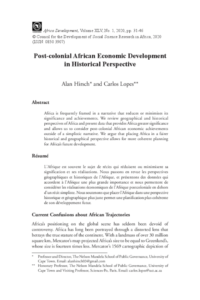The Dark side of Democracy Popular Sovereignty, Decolonisation and Dictatorship

This paper argues that we must look to the politics of popular sovereignty, and in particular its unfolding in the period after the Second World War, for the origin of the postcolonial condition, its specific vulgarity and temporality. Following Arendt, the paper proposes that as a democratic practice popular sovereignty transforms the ’people’ into absolutist subject, one that is necessarily simple, at one with itself and exercising supreme authority over its territory. Where such a people cannot be convened or institutionalised, democracy tends either towards dictatorship or oligarchy or society itself fragments and is at risk of dissolution. This has especially been the case on the African continent where the new states that emerged after independence from European Empires (and from settler-colonialism) were home to multitudes of great and wide heterogeneity, without long histories of living together in common and without, therefore, traditions and institutions of collective decision-making.



